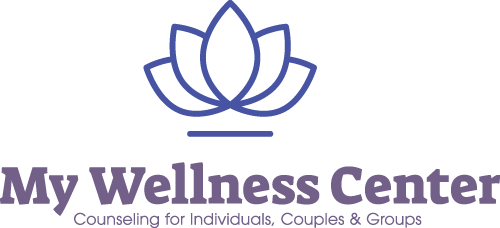All around the United States, more and more couples are deciding not have children. Sometimes referred to as voluntary childlessness, this decision is having a major impact on how our communities are shaped, impacting economic growth, culture, and every other aspect of society.
Voluntary childlessness also plays a major impact on the psyche. Choosing not to have children is just as big of a decision as choosing to have children, and the results of that decision are just as far-reaching, often drawing reactions from family members and friends.
In many cases, an individual who is voluntarily childless could benefit from therapy!
Jump to the section you need for additional information.
What Is Voluntary Childlessness?
How Many People Are Voluntarily Childless?
Reasons for Voluntary Childlessness
Therapy Options for Voluntary Childlessness
Pittsburgh Therapy for Voluntary Childlessness
What Is Voluntary Childlessness?
Voluntary childlessness is when an individual voluntarily decides not to have children. Sometimes referred to as childfreeness or being childfree, voluntary childlessness is growing more and more common throughout the United States.
Although some people feel comfortable and confident with their decision not to have children, societal pressures and norms can make this decision feel fraught, which can make therapy for voluntary childlessness incredibly valuable.
As you might expect, voluntary childlessness is the opposite of involuntary childlessness, which is when someone is incapable of having a child despite wanting one.
How Many People Are Voluntarily Childless?
A 2021 Pew Research Center study found that out of U.S. adults between the ages of 18 and 49 who are currently childless:
- 21% say they’re not too likely to ever have children
- 23% say they’re not likely at all to have children
That was an increase from 2018, when 16% and 21%, respectively, said they probably wouldn’t have children.
As we’ll discuss in the next section, there’s a wide variety of reasons people choose to remain childless throughout adulthood.

Reasons for Voluntary Childlessness
The Pew Research Center study also asked non-parents why they didn’t want to have children. Of those who said they were not too likely or not at all likely to have children:
- 56% said they simply didn’t want to have children
- 19% said it was because of medical reasons
- 17% said it was because of financial reasons
- 15% said it was because they didn’t have a partner
- 10% said it was because of their age
- 9% said it was because of the state of the world
- 5% said it was because of climate change
- 2% said it was because their partner didn’t want kids
In our offices, here are the common reasons we see people choosing not to have children:
1. Fear of Having A Baby (Or Getting Pregnant Again)
Among people who’ve lost a baby or pregnancy, the idea of trying to have another child can become emotionally challenging. More specifically, these individuals may become terrified of:
- Having a child who has to spend time in the NICU
- Experiencing medical complications
- Experiencing unwanted changes in their own body—especially for women who work hard to remain fit
These fears can lead to extreme hesitation to have a baby, leaving them without a child.
2. Fear of Other People’s Trauma
Watching a family member or friend go through a traumatic birth or struggle through the early days of parenthood can cause some individuals to rethink having children. Although part of them may yearn to have a family of their own, the fear of medical and emotional turmoil may prevent them from committing to getting pregnant.
3. Financial Instability
Having a child is expensive. Even when you strip away the hospital costs, the combined expenses of clothing, food, school, medication, and transportation add up to more than $300,000, according to Investopedia.
In today’s economic climate, where a dollar doesn’t travel nearly as far as it did in the post-World War II population growth, many couples are deciding they simply can’t afford a child—even in instances where they could be eligible fo government assistance.
4. Careers
Committing to one’s career is another major cause of childlessness. Long working hours or a determination to get ahead in one’s professional life can cause them to delay or forgo becoming a parent, which can potentially create issues with one’s partner.
5. Substance Abuse
Substance abuse can significantly alter someone’s lifestyle, but it can also disrupt someone’s ability to have a child—physically, emotionally, and financially. In some cases, an individual may even choose to continue their substance abuse instead of committing to raising a family.
6. Childhood Traumas
If someone has experienced their own childhood trauma in the past, they may become terrified of having a child, as they don’t want to inflict similar suffering onto another human being. As a result, they’ll decide to remain childless.
7. Mental Illness
Struggling with depression, anxiety, or another mental illness can create a significant hurdle to having children.
8. Emotional Immaturity
Some adults may feel too immature to successfully raise a child, and this can hold them back from starting a family.
9. Fear of the World
We also find that many involuntarily childless couples are well-read individuals who are terrified of the current state of affairs throughout the country and the rest of the world.
Between the tumultuous political climate, extreme climate change, the ever-rising cost of living, and well-covered violence in the news, many couples feel the world isn’t safe enough to raise a new baby.

Therapy Options for Voluntary Childlessness
There are a couple of different therapies we promote for voluntary childlessness, including:
- ACT Therapy – Acceptance and Commitment Therapy: ACT Therapy encourages mindfulness and focusing on the present moment. Instead of placing an emphasis on intense emotions, ACT Therapy encourages the patient to explore realistic solutions to their problems. In the case of voluntary childlessness, ACT Therapy can help people overcome issues like past trauma, mental illness, or financial instability.
- EMDR Therapy – Eye Movement Desensitization and Reprocessing Therapy: EMDR Therapy is a therapeutic technique that works by activating the entire brain as a patient works through painful memories, allowing them to “rewire” the brain and disconnect the painful emotions from the memory itself. Our Pittsburgh EMDR Therapy can provide a long-term solution to your emotional trauma—and help you fully accept your decision not to have children (or even move beyond it).
Both therapy techniques can be impactful. Talk to your Pittsburgh therapist for voluntary childlessness to determine which strategy is best for you.
Pittsburgh Therapy for Voluntary Childlessness
You can find Pittsburgh therapy for voluntary childlessness at My Wellness Center. Our experienced therapists are available to work through a variety of family-related issues, including Adoption Counseling Services and Perinatal & Postpartum Counseling Services.
Contact us to get started, and we can help you overcome the emotional challenges of voluntary childlessness.

